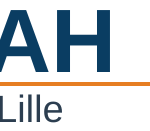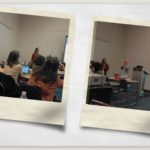Le LIP publie un chapitre qui aborde la question de l’intégration des contenus ludiques et pédagogiques sous l’angle de la ludicisation des situations d’apprentissage.
Abstract : Our contribution refers to the ludicization model (Genvo, 2013) as an alternative to the didactic transposition framework (Chevallard, 1985) enabling the contextualization of knowledge for game-based learning. We first present an ecological analysis of the didactic transposition in the Western Swiss curriculum, of Anthropocene as a new, complex and interdisciplinary concept. Then, we describe Geome, a game dedicated to museum school visits in the Nature Museum of Wallis (Switzerland), as a game-based learning approach to Anthropocene. The collaborative design-based methodology grounded on theoretical frameworks of knowledge contextualization and the design of Geome enables to design a didactic transposition model integrating ludicization. This ludicization framework offers new perspectives for the contextualisation of a target situation (a situation to be taught) into a source situation (a game-based learning situation) considering the complex relationships between actors, concepts and artefacts.
Lire le chapitre en ligne :
Bonnat, C., Sanchez, E., Paukovics, E., Kramar, N. (2023). Didactic Transposition and Learning Game Design. Towards a Ludicization Model for School Visits in Museums. In: Ligozat, F., Klette, K., Almqvist, J. (eds) Didactics in a Changing World. Transdisciplinary Perspectives in Educational Research, vol 6. Springer, Cham. https://doi.org/10.1007/978-3-031-20810-2_12



